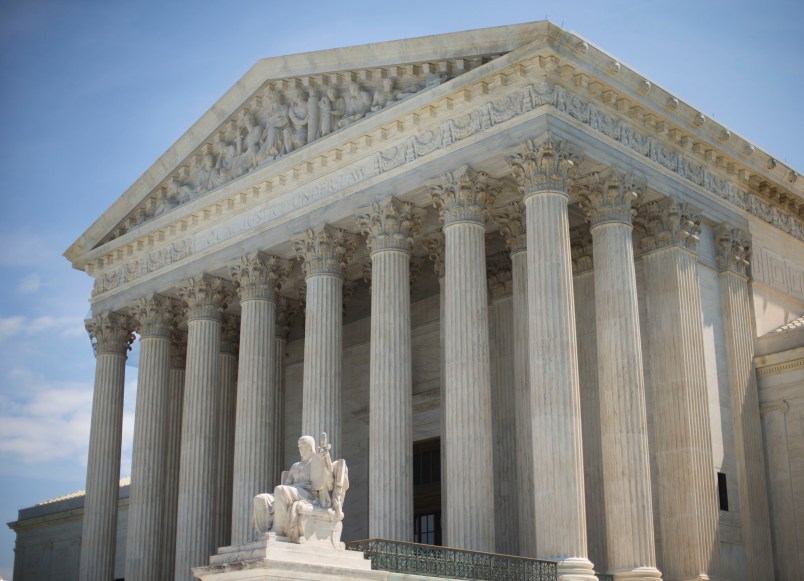UPDATE: June 25, 2015, 10:28 AM EDT
WASHINGTON (AP) — The Supreme Court handed a major victory to the Obama administration and civil rights groups on Thursday when it upheld a key tool used for more than four decades to fight housing discrimination.
The justices ruled 5-4 that federal housing laws prohibit seemingly neutral practices that harm minorities, even without proof of intentional discrimination. The case involved an appeal from Texas officials accused of violating the Fair Housing Act by awarding federal tax credits in a way that kept low-income housing out of white neighborhoods.
Justice Anthony Kennedy, often a swing vote, joined the court’s four liberal members in upholding the use of so-called “disparate impact” cases.
The ruling is a win for housing advocates who argued that the Fair Housing Act allows challenges to race-neutral policies that have a negative impact on minority groups. The Justice Department has used disparate impact lawsuits to win millions of dollars in legal settlements from companies accused of bias against black and Hispanic customers.
In upholding the tactic, the Supreme Court preserved a legal strategy that has been used for more than 40 years to attack discrimination in zoning laws, occupancy rules, mortgage lending practices and insurance underwriting. Every federal appeals court to consider it has upheld the practice, though the Supreme Court had never previously taken it up.
The ruling is a defeat for banks, insurance companies and other business groups that claimed such lawsuits are not explicitly allowed under the Fair Housing Act, the landmark 1968 law that sought to eliminate segregation that has long existed in residential housing.
Both the Obama administration and civil rights groups have tried for years to keep the issue away from theSupreme Court, fearing that conservative justices wanted to end the use of disparate impact lawsuits in housing cases. In fact, two similar cases out of Minnesota and New Jersey previously had reached the court in recent years, but those cases were settled or strategically withdrawn just weeks before oral argument.
Yet the court took up the Texas case last year despite the fact that there was no split among lower courts over the issue. That led to major worries for the NAACP and other civil rights groups that the court was inclined to end the strategy.
Copyright 2015 The Associated Press. All rights reserved. This material may not be published, broadcast, rewritten or redistributed.











This is good. Otherwise you get “The law, in its majestic equality…” and a whole lot of people saying they had no idea their actions would exclude minorities while thanking their lucky stars no one taped any meetings.
This is actually a big deal.
Yes, it is. Hallelujah – a surprisingly good day at the Court, and for the country.
This is a vert very big deal
Between gay marriage and today’s Obamacare opinion, Kennedy is going to lose his GOP man card.